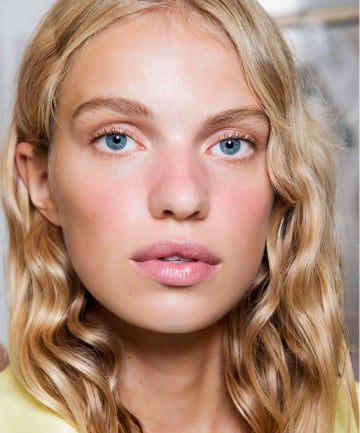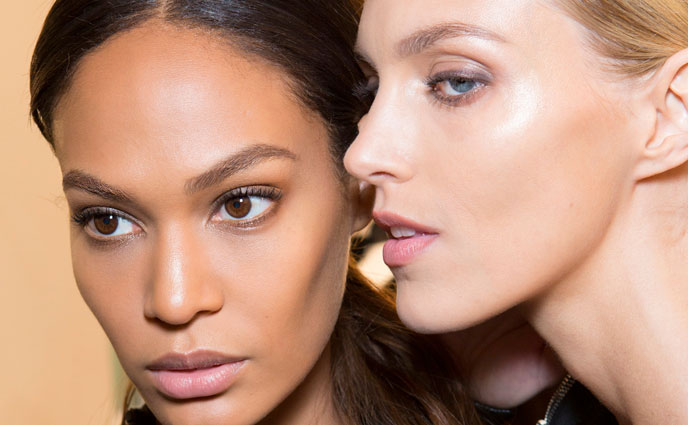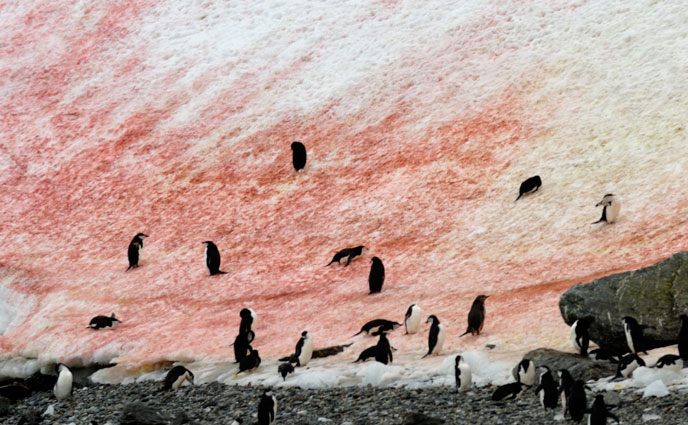Many of us are likely new to melatonin in skin care, but research goes back decades. Dr. Ava Shamban, MD, board-certified dermatologist and founder of Skin Five by Ava MD and Ava MD Dermatology clinics, says that it was discovered over two decades ago that melatonin is a strong free radical "scavenger." Similarly, Akridge adds that it's able to easily penetrate skin to neutralize pesky free radicals — which means it allows for direct antioxidant support in the fight against premature aging. (If left alone, free radicals can cause the breakdown of collagen and spur aging).
Image via Imaxtree
Image via Imaxtree
It's not only aging free radicals melatonin is thought to come after: Different studies have shown that melatonin can counteract specific tissue-related cellular stressors, says Shamban. The way it can repair DNA, protect the dermis and heal wounds makes it a "cellular warrior."
Image via Imaxtree
Image via Imaxtree
Melatonin already sounds pretty stellar, but we're not done with its potential benefits. Imber reveals that while he was doing initial research for the Youth Corridor Ultimate Antioxidant C Boost Serum, $195, he saw reports that showed the combination of vitamin C and melatonin resulted in more powerful antioxidant protection. An experiment involving sunburns showed skin that had topically applied vitamin C was less red after sun exposure than untreated skin. In the case of skin treated with melatonin and vitamin C and E it resulted in significantly greater sun protection. "I believe the combination of vitamin C, vitamin E and melatonin represents the most truly effective way to get enough of these antioxidants into the skin to impede collagen destruction, encourage collagen production, reduce facial wrinkles and reverse sun damage," explains Imber.
Image via Imaxtree
Image via Imaxtree
You knew there had to be a flip side, right? Shamban says that there are studies that make cases against melatonin for skin care. Some information indicates that using melatonin topically can increase pigmentation. This is because melatonin activates melanocytes, aka the specialized cells in the dermis that make melatonin — and more active melanocytes can lead to an increase in discoloration and sun spots.
"It might be best to use [melatonin] only in winter months after any sun damage and discoloration is lessened," says Shamban. "And only after a series of lasers or peels to help even discoloration and eliminate the majority of dark spots." Those with highly uneven skin or hyperpigmentation might want to avoid melatonin skin care altogether.
Image via Imaxtree
"It might be best to use [melatonin] only in winter months after any sun damage and discoloration is lessened," says Shamban. "And only after a series of lasers or peels to help even discoloration and eliminate the majority of dark spots." Those with highly uneven skin or hyperpigmentation might want to avoid melatonin skin care altogether.
Image via Imaxtree
Melatonin is produced in the body and skin. The body is hard at work always sensing for concentrations of all cell messengers and chemicals that are being produced or taken up. To this point, Akridge says that he hasn't seen a study that takes into account what happens in skin to natural melatonin production when more is applied to skin. Typically, natural production of anything is regulated — which could impact results of melatonin skin care products.
Image via Imaxtree
Image via Imaxtree









